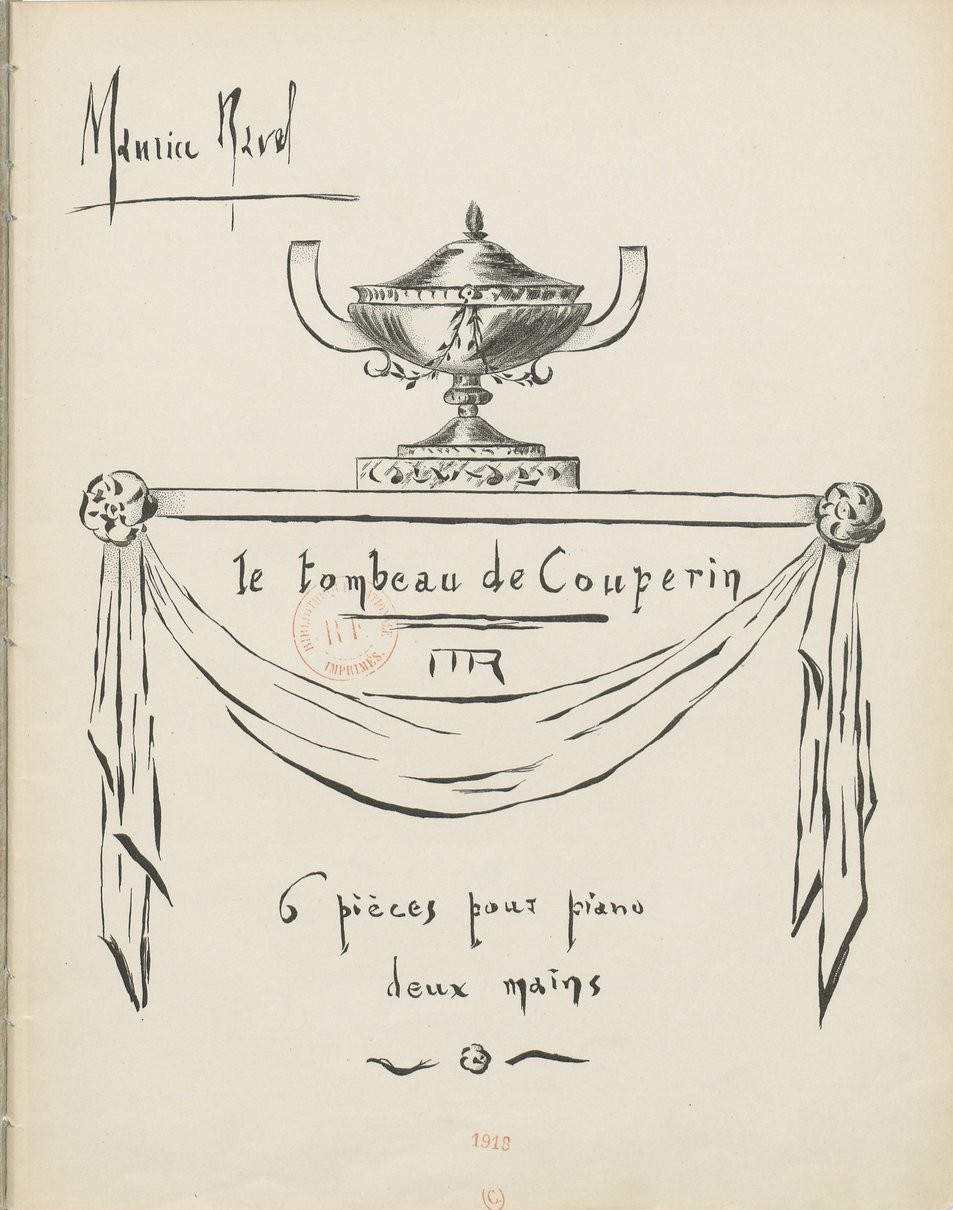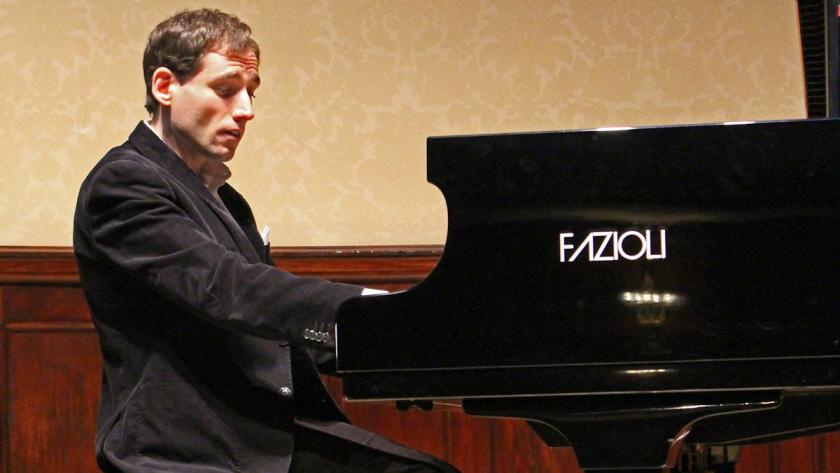A double-sided A4 sheet is better than a programme online only – the default for several London venues now – but the Wigmore Hall missed a vital trick in failing to tell us what Boris Giltburg intended in a transcendental sequence which should have been headed “death and remembrance”, He’s an eloquent writer, too; his own note would have been much better than the disconnected observations we got about Bach/Busoni, Ravel, Chopin and Medtner.
No matter: the unity in variety was both stunning and perfectly placed in a recital of two equally compelling but very different halves. Everything, according to Giltburg, to whom I’m grateful for filling me in on his intentions, fanned out from the ineffable beauty of Ravel’s Le tombeau de Couperin, placed last, “which on one hand is an homage to French music of the 17th century, and on the other, a memorial, as each of the six movements is dedicated to a friend of Ravel’s who died fighting in the First World War”. The Chaconne from Bach’s Second Violin Partita in the colossal arrangement by the great Busoni “doesn’t fit on paper, but I personally feel it as a summation of someone’s entire life”. What courage and grit to place it first on the programme.
It cast me back to the equally remarkable and communicative Alina Ibragimova doing the same in Pavel Kolesnikov’s and Samson Tsoy’s second Ragged Music Festival, where the image that came to mind was of Dante and Virgil at the gates of hell. Here Giltburg joined hands with Busoni’s phenomenal demands to guide us through a living monument, his chosen Fazioli also complicit in the fullest bass and the softest pianissimi (the wisdom of pianists has it that not all these instruments are of equal quality, but at their best, they also offer the richest possibilities of all).
 Ravel’s Pavane pour une infante défunte preserved the austerity but allowed us to catch our breaths and simply float. Then there was wonder above all at the genius of Chopin in his Second Piano Sonata – inexorable in drive throughout the first movement, with extra tumult towards its end, and the outer panels of the Scherzo, infinitely consoling in the melodies placed at the hearts of the inner movements, the ultimate lesson in lyricism as part of a supremely dramatic argument. And has there ever been a weirder, more unsettling finale than the rushing wind which followed an unsentimental Funeral March with absolute clarity that took nothing away from the strangeness.
Ravel’s Pavane pour une infante défunte preserved the austerity but allowed us to catch our breaths and simply float. Then there was wonder above all at the genius of Chopin in his Second Piano Sonata – inexorable in drive throughout the first movement, with extra tumult towards its end, and the outer panels of the Scherzo, infinitely consoling in the melodies placed at the hearts of the inner movements, the ultimate lesson in lyricism as part of a supremely dramatic argument. And has there ever been a weirder, more unsettling finale than the rushing wind which followed an unsentimental Funeral March with absolute clarity that took nothing away from the strangeness.
All was revelation, but for me, the discovery of the evening was the sheer personality and authenticity of Medtner’s Sonata-Reminiscenza, the first in the cycle he called Forgotten Melodies. Everything here sounded from a pure source, a spring that bubbled less excitedly than the one at the beginning of Ravel’s Tombeau, building imperceptibly to a dramatic climax but returning to nature at the end.
The Ravel suite, picking up the “old dance” strain in the programme with utter freshness, saw Giltburg play so subtly with rhythms and harmonies. Loss becomes explicit only in the middle sequence of the “Menuet”, but of the two movements omitted from the orchestral version simply because of their purely pianistic nature, the concluding Toccata took us full circle back to the more savage majesty in the first half. Then Giltburg promised us a radiant lightening in his first encore, Rachmaninov’s G major Prelude, No. 5 in Op, 32, the brief hint of sadness at its heart exquisitely resolved, before a final elegy in the shape of the G sharp minor Prelude, No. 10 in the same sequence. Come rain or shine, it was heaven throughout. Attentive full house should also be given due credit - more young people than usual owing to the special £5 ticket scheme.













Add comment